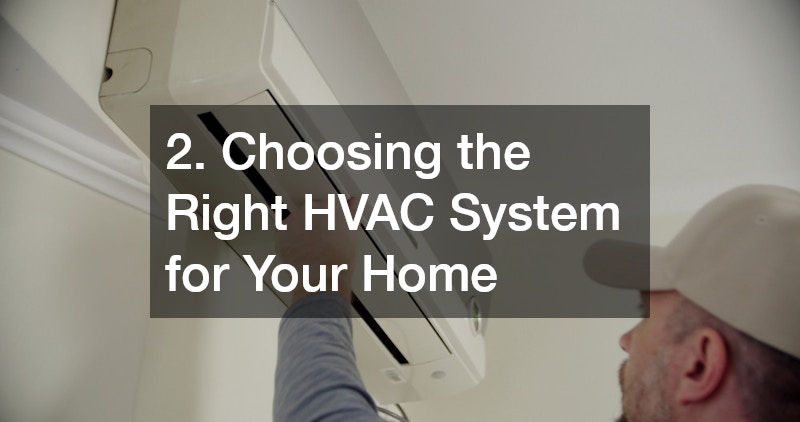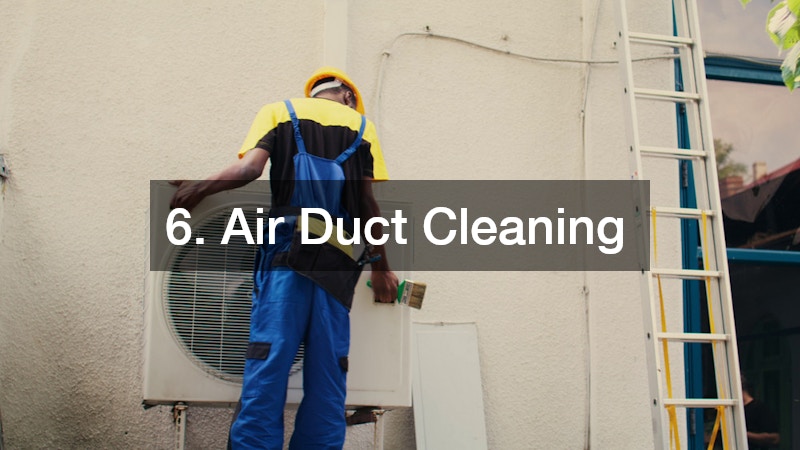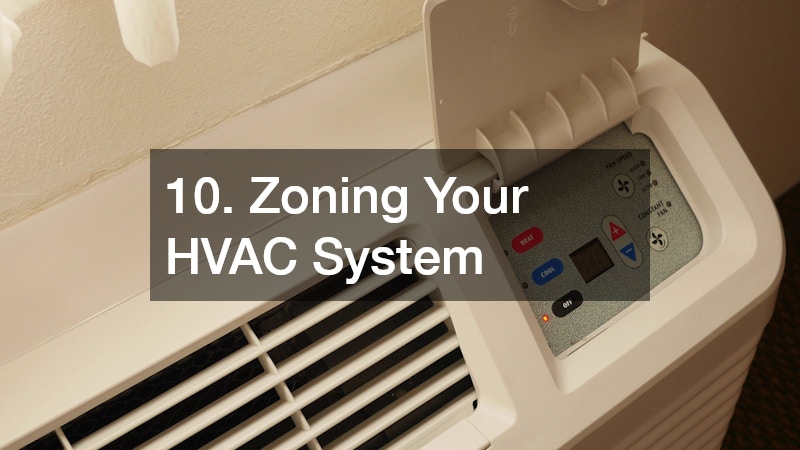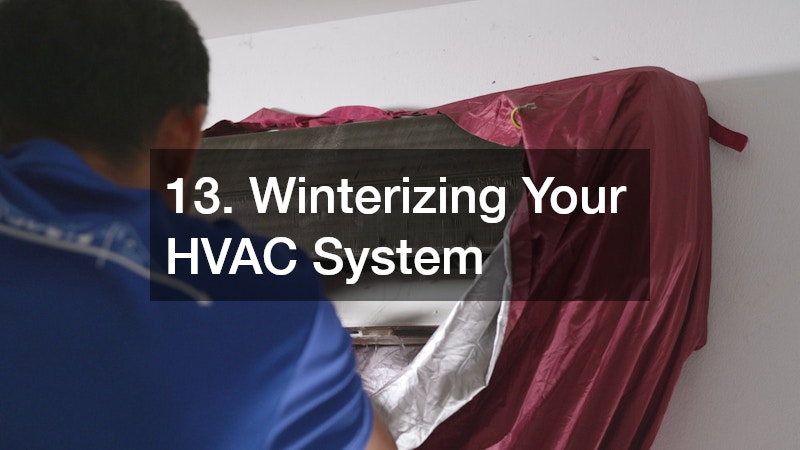When it comes to maintaining a comfortable living environment in your home, your HVAC system plays a crucial role. From regular maintenance to proper installation and energy-efficient practices, there are key HVAC best practices that can help ensure your home stays cozy in the winter and cool in the summer. In this comprehensive guide, we’ll explore the top tips and strategies for maximizing the performance and longevity of your HVAC system.
1. Importance of Regular HVAC Maintenance
Regular HVAC maintenance is essential for keeping your system running smoothly and efficiently. By scheduling annual tune-ups and inspections with a qualified HVAC contractor, you can prevent costly breakdowns and ensure that your system is operating at peak performance.
In addition to extending the lifespan of your HVAC system, regular maintenance from AC repair companies can also help improve indoor air quality and reduce energy consumption. By changing air filters, cleaning coils, and checking for leaks, you can keep your system running smoothly year-round.
When it comes to scheduling maintenance with a reputable HVAC company in your area, it’s important to plan ahead and book your appointments early. Most HVAC companies get busy during peak seasons, so make sure to schedule your tune-ups in advance to avoid any last-minute rush.

2. Choosing the Right HVAC System for Your Home
When it comes to selecting a new HVAC system for your home, it’s important to consider factors such as the size of your space, your budget, and your energy efficiency goals. There are several types of HVAC systems to choose from, including central air conditioning, heat pumps, and ductless mini-split systems.
Before making a decision, it’s a good idea to consult with a local HVAC contractor who can assess your home’s specific needs and recommend the best system for you. By choosing the right HVAC system, you can enjoy optimal comfort and energy savings for years to come.
In addition to selecting the right system, it’s crucial to ensure proper installation. Hiring a professional installer can help prevent common installation mistakes that can compromise the performance and efficiency of your HVAC system.
3. Proper HVAC Installation
Proper installation is key to ensuring that your HVAC system operates efficiently and effectively. When hiring a professional installer, be sure to choose a reputable HVAC company with a track record of quality workmanship.
Common installation mistakes to avoid include improper sizing of equipment, inadequate ductwork design, and incorrect placement of components. By working with a qualified HVAC contractor, you can ensure that your system is installed correctly the first time.
Before installation begins, make sure to discuss your expectations and preferences with your installer. By communicating openly and clearly, you can ensure that your new HVAC system meets your unique needs and delivers optimal performance.
4. Energy-Efficient HVAC Practices
Energy efficiency is a top priority when it comes to HVAC best practices. By implementing energy-saving strategies such as setting a programmable thermostat and sealing duct leaks, you can reduce your energy consumption and lower your utility bills.
Setting a programmable thermostat allows you to adjust the temperature of your home based on your schedule, reducing energy waste when you’re away or asleep. Sealing duct leaks helps prevent conditioned air from escaping, improving the overall efficiency of your HVAC system.
In addition to these practices, regular maintenance and timely repairs are essential for ensuring that your system operates at peak efficiency. By scheduling annual tune-ups and addressing any issues promptly, you can maximize the energy efficiency of your HVAC system.
5. Air Filter Maintenance
One of the simplest yet most important HVAC best practices is changing your air filters regularly. Clean air filters help maintain good indoor air quality and ensure that your HVAC system operates efficiently.
Dirty filters can restrict airflow, causing your system to work harder and consume more energy. By changing your filters every 1-3 months, you can prevent these issues and keep your system running smoothly.
If you have pets or allergy sufferers in your home, you may need to change your filters more frequently. It’s important to check your filters regularly and replace them as needed to maintain optimal performance.

6. Air Duct Cleaning
Over time, dust, dirt, and debris can accumulate in your air ducts, affecting the efficiency and air quality of your HVAC system. Signs that your ducts may need cleaning include musty odors, visible dust buildup, and increased allergy symptoms.
While some homeowners may attempt to clean their ducts themselves, professional duct cleaning services are recommended for thorough and effective results. Local HVAC contractors can provide duct cleaning services to remove contaminants and improve indoor air quality.
By investing in regular duct cleaning, you can ensure that your HVAC system operates efficiently and delivers clean, healthy air throughout your home. Be sure to schedule duct cleaning as needed to maintain optimal air quality.
7. Balancing Your Home’s Airflow
Proper airflow is essential for maintaining consistent comfort levels in every room of your home. If you notice uneven temperatures or airflow issues, it may be a sign that your system needs balancing.
To identify airflow issues, check for blocked vents, dirty filters, or obstructions in your ductwork. Simple adjustments such as closing or opening vents, cleaning filters, or repositioning furniture can help improve airflow and balance throughout your home.
If airflow problems persist, consult with a local HVAC contractor to assess your system and recommend solutions. By addressing airflow issues promptly, you can ensure that your home stays comfortable year-round.
8. Humidity Control
Proper humidity levels are essential for indoor comfort and air quality. Ideally, indoor humidity should be maintained between 30-50% to prevent mold growth, respiratory issues, and discomfort.
To control humidity levels, consider investing in a whole-house humidifier or dehumidifier. These devices can help regulate moisture levels and improve indoor air quality, especially during winter or summer months when humidity levels fluctuate.
In addition to humidity control devices, proper ventilation is also important for managing humidity levels in your home. By using exhaust fans in bathrooms and kitchens, you can help remove excess moisture and maintain a healthy indoor environment.
9. Ventilation Best Practices
Proper ventilation is crucial for maintaining good indoor air quality and preventing moisture buildup in your home. There are several types of ventilation systems, including exhaust fans, whole-house ventilation systems, and heat recovery ventilators.
To ensure optimal ventilation, it’s important to clean and maintain your ventilation system regularly. Check air filters, clean fan blades, and inspect ductwork for any blockages or leaks that could impede airflow.
If you’re unsure about the condition of your ventilation system, contact local HVAC contractors for a professional inspection. By addressing ventilation issues promptly, you can improve indoor air quality and overall comfort in your home.

10. Zoning Your HVAC System
Zoning your HVAC system can help improve energy efficiency and comfort by dividing your home into separate temperature zones. This allows you to customize temperatures in different areas of your home and avoid heating or cooling unused spaces.
Benefits of zoning include reduced energy consumption, increased comfort, and improved temperature control. Installation considerations include proper zoning controls, dampers, and thermostats, which can be installed by a qualified HVAC contractor.
By zoning your HVAC system, you can optimize comfort and energy savings throughout your home. Consult with a local HVAC contractor to explore zoning options and determine the best solution for your needs.
11. HVAC System Upgrades
If your HVAC system is outdated or showing signs of wear and tear, it may be time for an upgrade. Common signs that your system needs upgrading include frequent breakdowns, rising energy bills, and inconsistent comfort levels.
When considering upgrades, look for energy-efficient options such as high-efficiency furnaces, air conditioners, or heat pumps. These systems can help reduce energy consumption, lower utility bills, and improve overall comfort in your home.
Consult with a local HVAC contractor to discuss your options and explore energy-efficient upgrades that can benefit your home. By investing in a new HVAC system, you can enjoy improved performance, comfort, and energy savings year-round.
12. Using Ceiling Fans in Conjunction with HVAC
Ceiling fans can complement your HVAC system by improving airflow and circulation throughout your home. By using ceiling fans in conjunction with your heating or cooling system, you can enhance comfort and reduce energy consumption.
Benefits of ceiling fans include improved air circulation, energy savings, and customizable comfort. To maximize efficiency, make sure your fans are set to rotate counterclockwise in the summer to create a cooling breeze, and clockwise in the winter to circulate warm air.
By using ceiling fans strategically, you can enhance the performance of your HVAC system and maintain a comfortable living environment year-round. Consider installing ceiling fans in key living areas to optimize airflow and comfort in your home.

13. Winterizing Your HVAC System
Winterizing your HVAC system is essential for ensuring optimal performance and efficiency during the colder months. Preparing your system for winter can help prevent breakdowns, improve heating efficiency, and prolong the lifespan of your equipment.
Preventative steps before winter may include cleaning filters, inspecting ductwork, and checking for leaks or insulation gaps. By addressing these issues early, you can ensure that your system is ready to handle the demands of winter weather.
During the winter months, it’s important to schedule regular maintenance and monitor your system for any signs of trouble. By staying proactive and attentive to your HVAC system, you can maintain comfort and efficiency throughout the winter season.
14. Summer HVAC Best Practices
Preparing your HVAC system for the summer months with AC repair companies is crucial for staying cool and comfortable during hot weather. Prior to summer, consider scheduling a professional tune-up, cleaning air filters, and inspecting your system for any issues.
Tips for keeping your home cool in the summer include using ceiling fans, closing blinds or curtains during peak sunlight hours, and adjusting your thermostat when you’re away. By implementing these strategies and air conditioning maintenance, you can reduce energy consumption and maintain a comfortable indoor temperature.
If you encounter any issues with your HVAC system during the summer, contact the best air conditioning contractor for timely repairs and maintenance. By addressing issues promptly, you can avoid breakdowns and ensure that your system operates efficiently throughout the summer season.
15. Troubleshooting Common HVAC Issues
Even with regular maintenance and proper care, HVAC systems can experience common issues such as poor airflow, uneven temperatures, or strange noises. When troubleshooting problems, it’s important to identify the root cause and determine whether professional help is needed.
Common HVAC problems may include dirty filters, faulty thermostats, refrigerant leaks, or electrical issues. DIY solutions such as replacing filters or checking thermostat settings can help address minor issues, but complex problems may require HVAC best practices.
If you’re unsure about how to resolve a particular issue with your HVAC system, contact a local HVAC contractor for professional diagnosis and repair. By seeking help from a professional, you can ensure that your system is properly repaired and maintained for optimal performance.
By following key HVAC best practices such as regular maintenance, proper installation, AC repair, and energy-efficient strategies, you can keep your home comfortable year-round. Whether you’re winterizing your system, balancing airflow, or upgrading to a more energy-efficient model, these tips can help you maximize the performance and longevity of your HVAC system.
For all your heating and air conditioning services, be sure to consult with a local HVAC contractor who can provide expert guidance and support. By working with a qualified professional, you can address any issues with your HVAC system promptly and ensure that your home stays comfortable and efficient throughout the seasons.
With the right maintenance, upgrades, and HVAC best practices in place, you can enjoy a comfortable living environment and energy savings for years to come. Remember to schedule regular tune-ups, change air filters, and address any issues promptly to keep your HVAC system running smoothly. With these strategies in place, you can maintain optimal comfort and efficiency in your home regardless of the season.


